Understanding Student Loans Collections: What You Need to Know
Explore everything about student loans collections — how they work, impacts on your credit, and ways to manage or avoid them.
Student loans in collections can seriously affect your financial future.
Student loans have become a common way for millions to access higher education, yet many borrowers face challenges repaying them.
When payments are missed for an extended period, lenders may send these loans to collections, triggering a series of financial consequences.
Student loans collections can impact your credit score, cause additional fees, and even lead to legal actions.
However, understanding how collections work and what options you have can help you protect your financial health.
This guide dives into the essentials of student loans collections—how they happen, their effects, and how to handle or avoid them.

What Are Student Loans Collections?
Student loans collections occur when a borrower stops making payments, and the loan is turned over to a collection agency or the lender’s internal collection department.
Typically, federal student loans enter default after 270 days (about nine months) of nonpayment, while private loans may have different timelines, often shorter.
Once in collections, the debt is aggressively pursued, with attempts to recover the money owed through calls, letters, or legal action.
Unlike other debts, federal student loans have specific protections and options even after default, such as rehabilitation programs or consolidation. Private loans, however, can be less forgiving, and collections may lead more quickly to lawsuits or wage garnishments.
The Impact of Student Loans in Collections
When your student loan goes into collections, it can cause serious damage:
- Credit Score Damage: Collections typically remain on your credit report for up to seven years, lowering your credit score and making it harder to get future loans, credit cards, or even rental housing.
- Additional Fees: Collection agencies often add fees and penalties that increase the total amount you owe.
- Legal Consequences: Lenders or collection agencies may sue to recover the debt, potentially leading to wage garnishments or bank account levies.
- Stress and Anxiety: Persistent calls and collection efforts can affect your mental well-being.
Despite these challenges, being proactive can help minimize the harm and put you back on a path toward financial stability.
How to Avoid Student Loans Collections
The best way to avoid collections is to stay current on payments or act quickly if you start missing them. Here are key strategies:
- Communicate Early: Contact your loan servicer immediately if you’re struggling. Many offer options like deferment, forbearance, or income-driven repayment plans.
- Understand Your Loan Type: Federal loans offer more flexible relief options than private loans.
- Set Up Automatic Payments: Automating payments can reduce the risk of missing due dates.
- Create a Budget: Prioritize loan payments in your monthly budget to stay on track.
- Seek Financial Counseling: Nonprofit credit counselors can help you manage debt and explore alternatives.
What to Do If Your Student Loan Is Already in Collections
If your loan is already in collections, don’t ignore it. Here’s what you can do:
- Verify the Debt: Confirm the amount owed and that the collector has the legal right to collect.
- Know Your Rights: The Fair Debt Collection Practices Act (FDCPA) protects you from harassment and unfair practices.
- Negotiate a Payment Plan: Many collectors are willing to work out settlements or affordable payment plans.
- Consider Loan Rehabilitation: For federal loans, rehabilitation can remove the default status after nine on-time payments and restore benefits.
- Consolidation Options: Sometimes consolidating defaulted federal loans can help regain eligibility for repayment plans.
- Avoid Scams: Be wary of companies promising to erase debt for a fee—often these are scams.
Moving Forward: Rebuilding Your Financial Health
Once you manage collections or avoid default altogether, it’s important to focus on rebuilding your financial standing:
- Monitor Your Credit Report: Regularly check your credit to ensure collections are reported accurately and removed when appropriate.
- Stay Consistent with Payments: Keep up with your repayment plan or consolidation agreement.
- Build Emergency Savings: Having a cushion helps prevent future missed payments.
- Seek Support: Use financial aid offices, nonprofit counselors, or government programs to stay informed and supported.
Conclusion
Student loans collections can feel overwhelming, but knowledge is power. Understanding how collections happen, the consequences involved, and the options available can help you take control of your student loan debt.
Whether you’re still current or already in collections, proactive steps like communication with your lender, exploring repayment options, and protecting your rights can preserve your financial health and peace of mind.
Don’t let student loans collections define your financial future—take action today and regain control.







